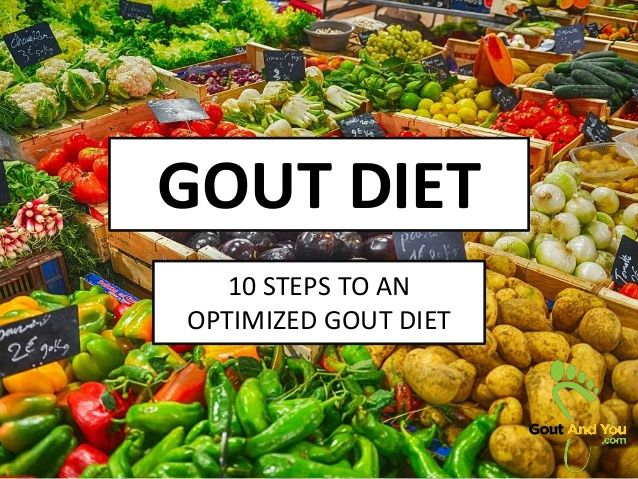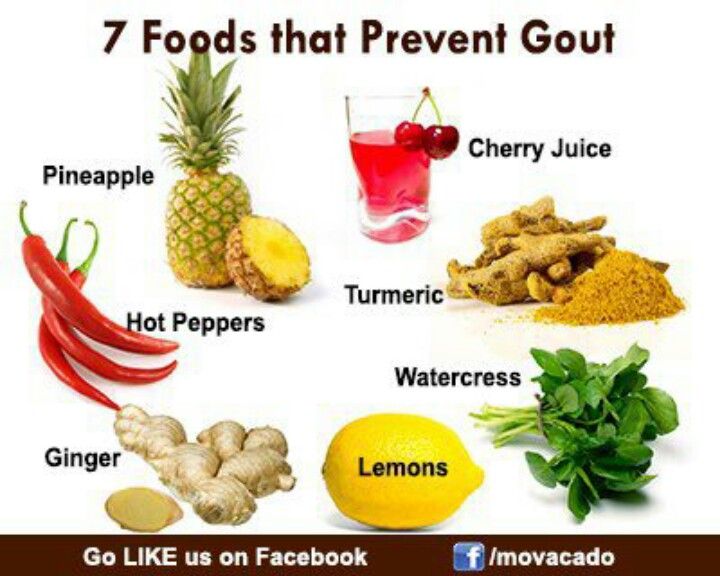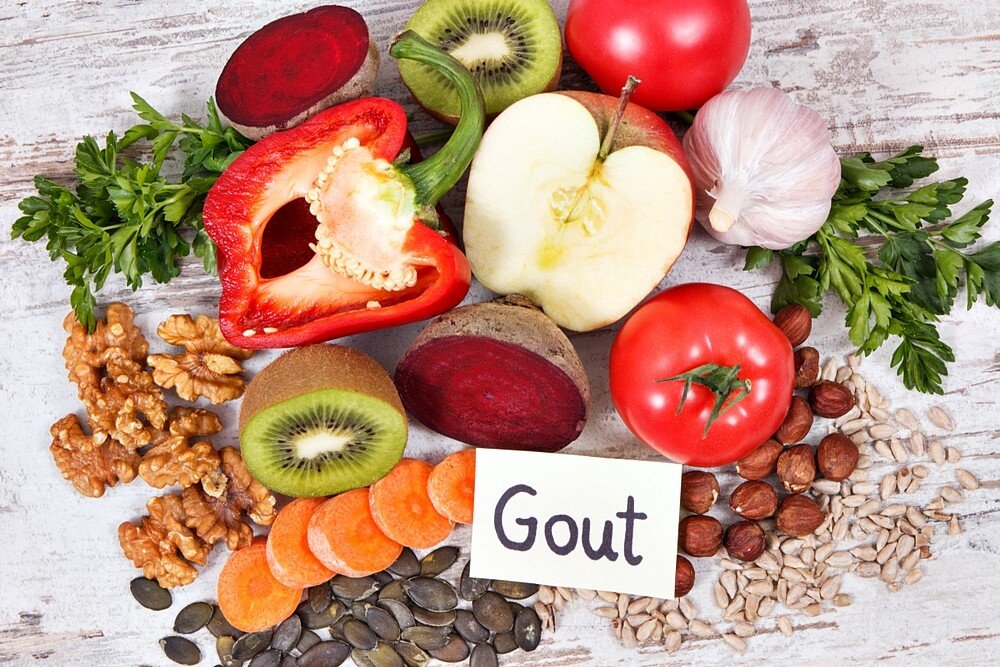The Cause Of Gout Is More Than Just Diet
While diet is critical, dont overlook other important factors that affect gout. These include family history, sleep apnoea, and lack of physical exercise to name a few.
Further discussion of best treatment for gout is outside the scope of this article. But there are foods thought to be protective namely dairy, cherries, and coffee, in decreasing order of evidence.
And as much as I prefer focusing on what you should eat to prevent health scares, there are just so many clear trigger foods for gout.
Its important to deal with these factors first and foremost.
About Joe Leech, Dietitian
Joe Leech is a university-qualified dietitian from Australia.
He graduated with a Bachelor’s degree in exercise science, followed by a Master’s degree in Nutrition and Dietetics in 2011.
Learn more about him on the About page.
Best Diet For Gout: What To Eat What To Avoid
We include products we think are useful for our readers. If you buy through links on this page, we may earn a small commission. Heres our process.
Gout is a type of arthritis, an inflammatory condition of the joints. It affects an estimated 8.3 million people in the US alone (
Fortunately, gout can be controlled with medications, a gout-friendly diet and lifestyle changes.
This article reviews the best diet for gout and what foods to avoid, backed by research.
High Purine Vegetables Are Ok
Some vegetables and plant foods, such as peas, beans, lentils, spinach, mushrooms, oats, and cauliflower, are high in purines. However, several studies have shown that they do not increase the risk of gout.
In fact, the opposite seems to be true, with a vegetable-rich diet being associated with a lower risk of gout compared with the lower consumption of vegetables. Therefore, you do not need to limit or avoid any vegetables on a gout-friendly diet.
Recommended Reading: How Do You Cure Gout
Exercise And General Health
In addition to following the gout diet, your healthcare provider may recommend that you make other changes to help you live comfortably with gout. The recommendations may include physical activity.
Studies have shown that regular exercise can help to improve joint function and help you to maintain a healthy weight. However, strenuous exercise can do more harm than good and dehydration may raise the level of uric acid in serum and trigger gout.
Gout And Diet: Foods And Drinks To Avoid

What causes gout, what are purines and are there any natural food remedies for the condition? Dietitian Emer Delaney explains which foods to eat and avoid.
Gout is an arthritic condition that can cause sudden, severe joint pain. If you are experiencing symptoms of gout, the NHS recommends that you see a doctor for treatment during an attack and to help prevent further attacks.
We asked Emer Delaney, a dietitian who has worked in some of Londons top teaching hospitals, to explain how diet and lifestyle can affect the condition.
Read Also: Foods High In Uric Acid Causing Gout
How To Get Rid Of Gout With Your Diet
Gout has literally been referred to The Disease of Kings because it has been associated with indulging excessively in food and alcohol, which was historically thought to be a privilege of royalty.
Acute flares of pain usually require anti-inflammatories and other medications in addition to diet.
Learning how to decrease flairs or prevent gout all together requires focusing on food.
Foods That Cause Gout
Its thought that foods and drinks high in purines can directly increase the uric acid and increase the risk of gout attacks. Part of the recommended treatment and prevention of future flairs is to consume a low purine diet.
And its just as important to avoid foods that contribute to the many other risk factors of the disease in daily meal planning.
Purine Rich Foods
While some of these foods can be healthy in people who do not have gout, it is recommended that they are in general minimized in people who suffer from the disease. For example, fish can be a very healthy part of a balanced diet. Gout diets may include fish lower in purines or small amounts of purine rich fish mentioned above.
Also Check: Ways To Prevent Gout Flare Ups
Chicken Beef And Other Meats Appear To Be Foods To Avoid With Gout
The conversion of purines to uric acid, in theory, causes gout.
Therefore high-purine foods are often suspected to trigger symptoms.
Meat, and to a lesser extent seafood, are prime suspects. This includes all the most common meats like beef, chicken, pork and lamb.
The data available somewhat confirms suspicions.
Each additional daily serving of meat or seafood is associated with a 21% or 7% increased risk of gout, respectively . This implies meat could be three times worse than seafood.
There was another similar study that found even greater risks associated with meat intake, but none for seafood. Overall this suggests seafood is far less of a concern than meat .
For those who already have gout, the impact of meat intake on symptoms is even worse. This is likely due to sharper increases in blood uric acid, as well as poorer clearance by the body .
Therefore if you have a history of gout, it is best to dramatically reduce your meat intake, and seafood as well to a lesser extent. Anecdotal evidence suggests avoiding dark part of salmon, and de-veining prawns/shrimp before eating.
You should also buy your meat direct from the butcher where possible, or at least the better quality choices in the supermarket. Sausages and low-quality ground beef may contain traces of organ meat that can cause big problems .
Summary: Frequent consumption of meat is strongly linked with gout risk. The impact of seafood appears far less severe, but there is a link.
Should I Cut Out Purine
There is very little scientific proof that avoiding the purine-rich foods listed above can successfully reduce gout attacks. You may miss out on important nutrients and vitamins by completely cutting these foods from your diet.
If you notice certain foods trigger your gout attacks, you may benefit from cutting down the amounts of those foods in your diet. However not all purine-rich foods are thought to cause gout. For example, a number of vegetables are also rich in purines but appear less likely to cause gout than diets containing meat and shellfish.
Dairy foods, which can contain purines, actually appear to lower the risk of gout. For most people with gout, a healthy balanced diet is all that is needed, alongside medicines to reduce uric acid levels. Most people taking medicines to reduce uric acid levels find they can still eat purine-rich foods without attacks of gout by being careful with the quantity they eat.
Also Check: Can Gout Be Seen On Xray
Food Loaded With Omega 3 Fatty Acids
When you hear omega 3 fatty acids, you think of fish instantly. This is particularly true. Almost every fish contains plenty of this compound. But, you can get the same from walnuts for example. Add the fact some fish can be consumed despite the fact you have gout and you get a more versatile diet.
You can consume salmon, herring, sardines, and mackerel. Start with small amounts and gradually increase portions. Omega 3 fatty acids dont affect uric acid directly. It will decrease inflammation and swelling which is beneficial during the gout attack.
Suggested article: Fish And Gout 15 Types Of Fish Explained
What Is The Recommended Diet For Gout Sufferers
There are no foods that can completely prevent the symptoms of gout, but a diet low in purines may help to reduce the frequency of attacks. Following a nutritionally balanced, healthy diet that is low in saturated and trans fats and rich in unprocessed foods can help to reduce the risk of gout attacks. Care needs to be taken with certain vegetables such as asparagus, beans, cauliflower, lentils, mushrooms and spinach as these contain medium levels of purines.
While these dont need to be avoided completely, portion size is important a moderate intake should not increase the risks of gout. All other vegetables should be eaten freely. There is also evidence to suggest that a high consumption of low-fat dairy products , limiting sugary drinks and having a daily vitamin C supplement of 500mg may reduce the risk of gout. Speak to your GP before starting new supplements or altering your diet to manage gout.
It is important to note that it is the quantity of purine-rich food consumed that is more important than the purine content in each food. However, if a patient is keen to measure quantities of food, a maximum total daily purine intake of around 200mg is recommended.
Also Check: Gout In The Foot Causes
Avoid Sweets And Sodas
Unlike fruit with its natural sugar, artificial sugars are widely recognized as gout flare dangers. Consuming too many sugary sodas has been found to provoke attacks, but no association has been found with artificially sweetened sodas. Other foods loaded with high-fructose corn syrup can also bring on gout pain.
Is High Fructose Corn Syrup A Problem

Yes, absolutely. High-fructose corn syrup is a known factor for gout flare-ups because it raises uric acid levels in your body. Its also used in far more pre-packaged and processed foods than you might think. When youre grocery shopping, always check nutrition labels. If corn syrup is an ingredient in a product, dont buy it.
Also Check: Massage For Gout In Foot
What Foods Should You Eat
Although a gout-friendly diet eliminates many foods, there are still plenty of low-purine foods you can enjoy.
Foods are considered low-purine when they have less than 100 mg of purines per 3.5 ounces .
Here are some low-purine foods that are generally safe for people with gout (20,
- Fruits: All fruits are generally fine for gout. Cherries may even help prevent attacks by lowering uric acid levels and reducing inflammation (
- Vegetables: All vegetables are fine, including potatoes, peas, mushrooms, eggplants and dark green leafy vegetables.
- Legumes: All legumes are fine, including lentils, beans, soybeans and tofu.
- Nuts: All nuts and seeds.
- Whole grains: These include oats, brown rice and barley.
- Dairy products: All dairy is safe, but low-fat dairy appears to be especially beneficial (
- Beverages:Coffee, tea and green tea.
- Herbs and spices: All herbs and spices.
- Plant-based oils: Including canola, coconut, olive and flax oils.
Foods You Shouldn’t Eat If You Have Gout
Gout is incredibly painful, but did you know that there are certain foods that can make it even worse? Watch this video to learn which foods you definitely shouldn’t eat if you have gout.
Don’t Miss: How Long Do Gout Attacks Normally Last
If You Have Gout A Painful Type Of Arthritis You May Be Trying To Limit Purines In Your Diet Heres What You Need To Know To Get Started
Has your doctor suggested that you or someone you love go on a low-purine diet to help with the painful symptoms of gout? If so, its important to understand what a low-purine diet is, and how it may help manage gout as part of your overall gout treatment plan.
Gout is a type of arthritis that develops when high levels of a chemical called uric acid in the blood cause uric acid crystals to build up in a joint. This can lead to inflammation and pain, often in the big toe, as well as other joints. Gout attacks, or flares, are often extremely and suddenly painful and debilitating.
In most people, the body produces a manageable amount of uric acid, and the kidneys eliminate any excess through the urine. In a person with gout, however, the body doesnt have good control over the amount of uric acid in the blood. The goal of gout treatment is to lower the level of uric acid back to normal so it wont cause problems, says Calvin R. Brown, Jr., MD, professor of medicine at the Feinberg School of Medicine of Northwestern University in Chicago. Depending on your specific needs, a combination of medication to manage gout and lifestyle changes, including a low-purine diet, can help you reach that target.
Its very important to get uric acid levels to a healthy level and keep them there. Without proper treatment, gout flares can become more frequent, affect more joints, and lead to bone and joint damage as well as these other significant gout complications.
Purine Rich Foods And Why You Should Eat Fewer Purines
Purines are one of the most common chemical compounds on the planet. There are two kinds of purines: endogenous and exogenous. Exogenous purines are absorbed by the body through the foods that you eat, whereas, endogenous purines are made directly by the body itself. Uric acid forms when purines are broken down in the digestive system. Eating too many purines can cause a buildup of uric acid in the body. If uric acid remains in the body for too long, it can crystallize and cause a number of health risks. Therefore, its important to moderate the number of purines that you consume.
Also Check: What Not To Eat While Having Gout
Drinks You Should Avoid On Gout
Its so easy to forget that what we drink is an important part of our diet. Drinks can contribute important hydration and nutrients. However, its easy for calories and additional additives like fructose to slip by and all too quickly add up.
Alcohol
Excessive alcohol use should be avoided, well in everyone. However, people with gout should be even more careful with how much they alcohol they consume.
The American College of Rheumatology recommends no more than 2 drinks daily for men and no more than 1 drink daily for women with the disease. Its also recommended to completely eliminate alcohol during active flares .
Beer and hard alcohol seem to much bigger culprits than wine at aggravating the disease .
Diet Tip: If you are affected by gout and still want to enjoy an adult beverage, a controlled amount of wine is the best choice for minimizing negative health effects.
Sugary Drinks
Almost any non-diet drink contains a significant amount of added sugar, often in the form of fructose. Not only does added fructose contribute to uric acid build up, it also contributes negatively to making the other chronic diseases worse. Added sugar is one of the biggest enemies of the obesity epidemic, and comorbid conditions that go along with it.
This includes any soda thats not diet along with most fruit juices and energy drinks.
Foods To Be Eaten In Moderation
Foods like asparagus, beans, lentils, mushrooms, shrimp, spinach, poultry, and fish other than those mentioned bellow should be consumed in moderation. In relation to red meat, poultry, and fish, these can be consumed in a 60 to 90 gram portion daily.
Some people have stated that foods such as strawberries, oranges, tomatoes, and nuts can also cause gout crisis, however, these foods are not rich in purine. Up to now, there is no scientific evidence that confirms whether these foods do indeed cause a gout crisis and why. So, it’s important that you pay attention to your diet so that if you have a crisis, you can be aware of what food caused it in order to avoid it in the future.
You May Like: Vegetables Not To Eat When You Have Gout
How Is Gout Affected By Diet
Gout is a type of arthritis that is associated with elevated levels of uric acid in the blood. High levels of uric acid can cause crystals to form in the joints, causing pain and swelling. Uric acid is a normal waste product formed from the breakdown of food, particularly compounds called purines. It is believed that lowering uric acid levels through small changes in your diet may help reduce the chance of future gout attacks.
A healthy, balanced diet may help reduce the risk of gout attacks.
Do I Need To Stop Drinking Alcohol With Gout

Yes, its a good idea to cut out alcohol. Alcohol molecules in your body tend to increase uric acid levels, so drinking can push you over the edge and into a flare-up. If youre newly diagnosed and start taking medication, try cutting out alcohol at first. Your doctor may allow you to add a small amount back into your diet over time as your uric acid levels come down. But even then, its best to avoid beer and liquor and stick to safer choices such as red wine, Dr. Burg says.
All myths aside, the best advice for people with gout is to eat fresh, unprocessed foods. Choose complex carbohydrates over refined carbs from packaged or processed foods. And always drink plenty of water because dehydration is a risk factor for an acute attack.
Don’t Miss: Foods Good For Gout List
How Does Drinking Alcohol Affect Gout
Alcoholic drinks tend to be high in purines and consuming more than the recommended amount can increase the risk of a gout attack. It is therefore recommended to limit alcohol intake, avoid binge drinking and avoid all alcohol if you have painful gout or are having a gout attack. Try limiting alcohol to a maximum of 14 units per week for both men and women and 1-2 units per day with a minimum of two alcohol-free days a week. Beer, stout, port and fortified wines tend to be higher in purines and should be restricted. Moderate consumption of wine is not associated with a significant increased risk.